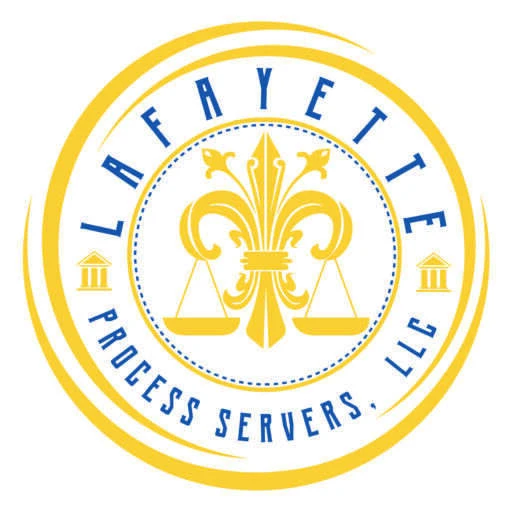A process server’s primary goal is straightforward: deliver legal documents to the correct person in a timely, legally-compliant manner. However, what happens when the person on the other side of the lawsuit seems to have vanished into thin air? 💨 This is a common roadblock that can halt a legal case in its tracks.
As of Wednesday, September 17, 2025, here in Carencro and the greater Lafayette area, the days of giving up on a difficult serve are over. At Lafayette Process Servers LLC, we integrate a powerful tool into our workflow to ensure success: skip tracing. This article, therefore, pulls back the curtain to show you exactly how our process servers use skip tracing to guarantee service.
The Standard Serve: When Things Go as Planned ✅
In a perfect world, every service of process is simple. Our process server receives the documents, goes to the address provided, confirms the individual’s identity, and then hands them the papers.
This ideal scenario happens often. On the other hand, any experienced process server knows that many cases aren’t this easy. People move, avoid service, or provide outdated information, which is where the real challenge begins.
The Roadblock: When a Person “Goes Missing” 🚧
Our process server arrives at the last known address in Lafayette, but the target isn’t there. A neighbor might mention they moved out months ago. Similarly, the workplace address on file could be from a job they left last year.
This is the critical point where a less-equipped service might return the papers as “unserved.” This mistake costs you valuable time and money and, consequently, can seriously jeopardize your case’s timeline. Our team, however, sees this as a green light to initiate the next step.
Enter Skip Tracing: The Process Server’s Secret Weapon 🕵️♂️
Instead of giving up, our process servers immediately pivot to skip tracing. This is the legal and ethical process of locating a person whose whereabouts are unknown. It’s not a simple Google search; rather, it’s a professional investigation using powerful tools and strategies.
Here’s how our process servers use skip tracing:
- Access Professional Databases: First, we subscribe to restricted, data-rich databases unavailable to the general public. These provide access to information like credit headers, property records, and utility information.
- Cross-Reference and Verify: Next, we never rely on a single piece of information. Our team cross-references data points from multiple sources to verify their accuracy and build a clear picture of the person’s current location.
- Identify New Leads: Ultimately, the primary goal is to uncover a new, current residential address or a confirmed place of employment. This provides a high-probability location for a successful serve. 🎯
- Maintain Legal Compliance: We perform all of our skip tracing activities in strict compliance with federal laws like the Fair Debt Collection Practices Act (FDCPA) and the Gramm-Leach-Bliley Act (GLBA), ensuring we obtain the information legally and ethically.
From Trace to Serve: Putting the Pieces Together 🧩
Once the skip trace provides a new, verified address—whether it’s in Carencro, Youngsville, or across the state—the final step begins. Armed with this new intelligence, our process server goes back into the field.
This integration of technology and fieldwork is what guarantees a higher success rate. As a result, a defendant who thought they couldn’t be found is now legally served, allowing your case to proceed without delay. By having our process servers use skip tracing, we transform a dead-end into a successful service.
Don’t let a missing defendant or witness derail your case. The team at Lafayette Process Servers LLC has the tools and expertise to find who you’re looking for and ensure they receive your legal documents, guaranteed.
⚠️ Disclaimer
This article is for informational purposes only and does not constitute legal advice. The methods and legality of process serving and skip tracing are governed by state and federal laws. Therefore, please consult with a qualified attorney for advice on your specific legal situation.
📚 Sources & Further Reading
- National Association of Professional Process Servers (NAPPS): Provides a code of ethics and standards for the profession. Link to NAPPS
- Gramm-Leach-Bliley Act (GLBA): A federal law that governs the protection of consumers’ private financial information, which is relevant to ethical skip tracing. Link to the FTC
- Louisiana Code of Civil Procedure – Service of Process: The official state laws governing how we must legally serve documents. Link to the Louisiana Legislature
- Need a Process Server in Lafayette, LA? Your Guide to Fast & Reliable Service 📜

